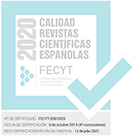Lichen community from an endangered forest under different management practices in central Argentina
Resumo
We studied a lichen community from 300 ha of native Espinal forest under different types of management, classified into the following sectors: temporary grazing, adjacent crops, landscaped, and conserved. We observed 20 trees in each sector, identified lichen species and measured coverage in grids of 0.2 x 0.2 m. We compared alpha and beta diversity plus coverage by sector using the Kruskal-Wallis and Mann-Whitney U tests. We also applied a Multiple Response Permutation Procedure, a Non-metric Multidimensional Scaling multivariate analysis and the Indicator Species Analysis to test associations. We found 34 species of lichens. Physciaceae was the dominant family in the community. Total lichen coverage was highest in the temporary grazing sector and lowest in the conserved sector. No significant differences were found in alpha diversity among sectors; however, beta diversity was higher in the conserved sector. Multivariate analysis also showed that different management practices determine changes in community composition.Downloads
Não há dados estatísticos.
##submission.format##
Publicado
2014-09-24
Como Citar
Filippini E. R., Rodriguez J. M. y Estrabou C. (2014). Lichen community from an endangered forest under different management practices in central Argentina. Lazaroa, 35, 55-63. https://doi.org/10.5209/rev_LAZA.2014.v35.45637
Edição
Secção
Articles
Licença
Lazaroa is an open access journal to promote global exchange knowledge. It facilitates unrestricted access to its contents from the moment of publication in its electronic edition. The originals published are property of the Universidad Complutense and it is mandatory to cite such source in case of total or partial reproduction. All contents are distributed under a Creative Commons License 4.0 (CC BY 4.0). This circumstance must be expressly stated in this way when necessary. You can check the informative version and legal text of the license.
Lazaroa does not charge for download or publishing any article.








